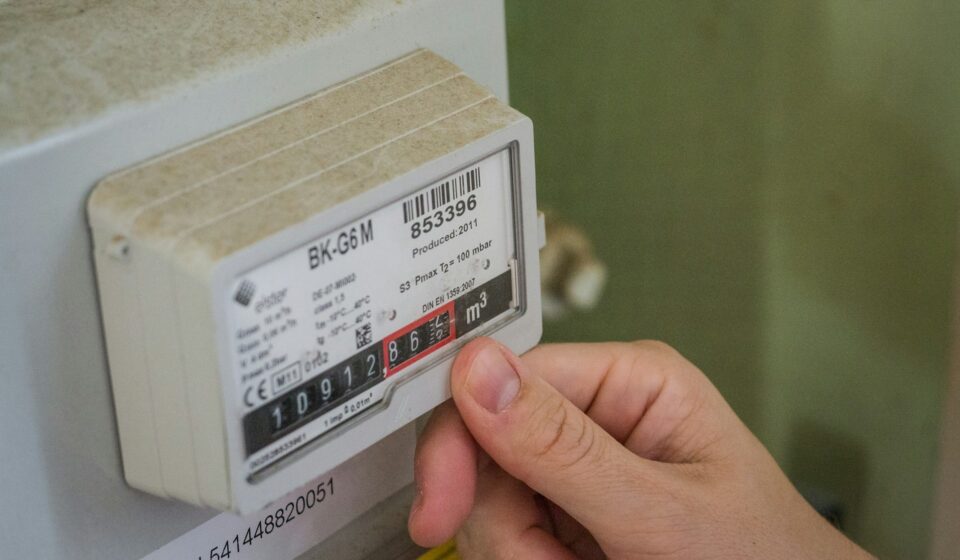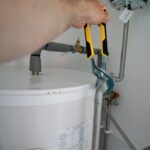
Slash Your Bills: Appliance Upkeep for Energy Savings
Keeping your home running smoothly involves more than just paying the bills on time. The appliances you rely on every day—from the refrigerator keeping your food fresh to the washing machine handling your laundry—can have a major impact on your monthly energy consumption.
Table Of Content
- Keep Your Cool: Refrigerator and Freezer Maintenance
- Clean the Coils
- Check the Seals
- Breathe Easy: HVAC System Care
- Replace Air Filters
- Schedule Professional Tune-Ups
- Come Clean: Dishwasher and Laundry Appliance Tips
- Run Full Loads
- Use Cold Water for Laundry
- Clean the Dryer Lint Filter
- Cooking Smart: Kitchen Appliance Maintenance
- Keep Your Oven Clean
- Match Pots and Pans to Burner Size
- Bright Ideas: Lighting and Electronics
- Switch to LED Bulbs
- Unplug Unused Electronics
- Hot Water Smarts: Water Heater Efficiency
- Check the Temperature Setting
- Drain Sediment Annually
- Your Path to Lower Energy Bills
Neglecting their maintenance can lead to decreased performance and surprisingly high utility costs. This post will explore practical ways to maintain your household appliances to boost their efficiency.
By following these straightforward tips, you can ensure your devices run optimally, leading to significant energy savings and helping you achieve lower bills. We’ll cover everything from your HVAC system to your kitchen gadgets, providing actionable steps to improve your home’s overall appliance efficiency.
Learning how to properly care for your appliances is a smart investment in your home’s long-term financial health.
Keep Your Cool: Refrigerator and Freezer Maintenance
Your refrigerator and freezer work around the clock, making them two of the biggest energy consumers in your home. Proper upkeep is essential to keep them running efficiently.
Clean the Coils
Condenser coils, usually located at the back or bottom of your unit, are responsible for releasing heat. When they get covered in dust and debris, the refrigerator has to work harder to cool down, consuming more energy.
- How often: Clean the coils at least twice a year.
- How to do it: Unplug the refrigerator and use a coil brush or the brush attachment on your vacuum to gently remove buildup.
Check the Seals
The rubber seals, or gaskets, around your refrigerator and freezer doors keep cold air in and warm air out. If these seals are worn or dirty, cold air can escape, forcing the unit to run more frequently.
- Test the seal: Place a dollar bill in the door and close it. If you can pull the bill out easily, the seal may need to be cleaned or replaced.
- Cleaning: Wipe the gaskets regularly with a damp cloth and mild detergent.
Breathe Easy: HVAC System Care
Your heating, ventilation, and air conditioning (HVAC) system is crucial for comfort, but it can be a major drain on your energy budget if not properly maintained.
Replace Air Filters
Clogged and dirty air filters restrict airflow, making your HVAC system work harder to heat or cool your home. This not only increases energy use but can also shorten the lifespan of your unit.
- Frequency: Check your filters monthly and replace them at least every three months. If you have pets or allergies, you may need to replace them more often.
- Benefit: A clean filter can reduce your HVAC’s energy consumption by 5% to 15%.
Schedule Professional Tune-Ups
While changing filters is a simple DIY task, some maintenance is best left to professionals. An annual tune-up ensures all components are working correctly and efficiently.
- What it includes: A technician will inspect, clean, and adjust parts like coils, fins, and drains to ensure optimal performance.
- Timing: Schedule a check-up for your air conditioning in the spring and your heating system in the fall.
Come Clean: Dishwasher and Laundry Appliance Tips
Your dishwasher, washing machine, and dryer are essential for keeping your household running, but they can use a lot of hot water and electricity.
Run Full Loads
Washing machines and dishwashers use roughly the same amount of energy and water regardless of the size of the load. To maximize efficiency, wait until you have a full load before running a cycle. This simple habit can lead to significant energy savings over time.
Use Cold Water for Laundry
Approximately 90% of the energy consumed by a washing machine is used to heat the water. By washing your clothes in cold water, you can drastically reduce energy use. Most modern detergents are formulated to work effectively in cold water, so you won’t be sacrificing cleanliness.
Clean the Dryer Lint Filter
A clogged lint filter restricts airflow, making your dryer work harder and longer to dry your clothes.
- Action: Clean the lint filter after every single load.
- Deep clean: Periodically wash the filter with soap and water to remove any residue from fabric softeners. Also, inspect and clean the dryer vent and ductwork annually to prevent fire hazards and improve appliance efficiency.
Cooking Smart: Kitchen Appliance Maintenance
Your oven, stove, and smaller kitchen gadgets also contribute to your energy bill. A few simple habits can help you cook more efficiently.
Keep Your Oven Clean
A clean oven heats more evenly and efficiently. Spills and buildup on the interior surfaces and the glass door can absorb heat, forcing the oven to use more energy to reach and maintain the desired temperature. Use the self-cleaning feature sparingly, as it consumes a lot of energy.
Match Pots and Pans to Burner Size
When cooking on an electric stovetop, using a small pot on a large burner wastes heat. By matching the size of your cookware to the burner, you ensure that more of the heat is transferred directly to your food, reducing wasted energy.
Bright Ideas: Lighting and Electronics
While not traditional “appliances,” your lighting and electronics can add up on your energy bill.
Switch to LED Bulbs
LED bulbs use at least 75% less energy and last 25 times longer than traditional incandescent bulbs. Making the switch throughout your home is a simple way to achieve lower bills.
Unplug Unused Electronics
Many electronics continue to draw power even when they are turned off. This “phantom load” can account for up to 10% of your home’s energy use. Unplug chargers, TVs, and other devices when not in use, or use a power strip to easily turn them all off at once.
Hot Water Smarts: Water Heater Efficiency
Your water heater is another major energy user. Proper maintenance can make a big difference.
Check the Temperature Setting
Many manufacturers set water heater thermostats to 140°F, but most households only need them set to 120°F. Lowering the temperature can reduce your water heating costs by 4% to 22% annually.
Drain Sediment Annually
Over time, sediment can build up at the bottom of your water heater tank. This forces the unit to work harder to heat the water. Draining a few gallons from the tank once a year helps remove this sediment and improves efficiency. For more detailed instructions on your specific model, this website can be a helpful resource.
Your Path to Lower Energy Bills
Consistent appliance maintenance is one of the most effective strategies for managing your home’s energy consumption. By adopting these simple habits, you not only extend the life of your appliances but also make a tangible impact on your monthly expenses.
Taking small steps to improve appliance efficiency adds up to substantial energy savings and contributes to a more sustainable household. Start implementing these tips today to enjoy a more efficient home and the benefit of lower bills.



